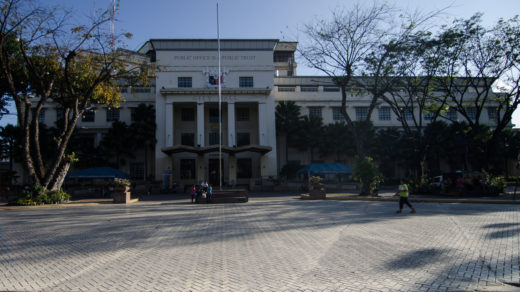This is a very interesting topic. Since some of us have already provided the definition and background needed to understand artificial intelligence (AI from hereon) and multimedia systems, I thought it would be best if I’d help create a bigger picture of how those two meld together.
People have started realizing the immense opportunities that multimedia and AI can bring to the table so much so that expos are being held in key cities around the world to discuss about their practical application in our daily routines, share related innovations and solutions to our current problems and envision how these technologies will further revolutionize our way of life in the future[1].
As an example, below is an excerpt from the 4th Global Summit and Expo on Multimedia & Artificial Intelligence to be held on July 19-21, 2018 in Rome, Italy[2].
Multimedia & Artificial Intelligence (AI) is changing the world around us and will bring new capabilities to everything from smart factories to drones to sports to health care and to driverless cars. In every industry technology and its application significantly change existing business models while simultaneously creating new ones. FMI recently published a report on the global market for IP multimedia subsystem, it anticipated to grow at a rate and bring in US$ 50,347.4 MN in revenues by 2026-end, reflecting a CAGR of 15% during the forecast period.The annual worldwide AI revenue will grow from $643.7 million in 2016 to $36.8 billion by 2025.
Now, multimedia systems are being used for a wide range of purposes. In the healthcare industry, they are using “intelligent multimedia systems” for training, research, big data management and in the future we are possibly looking at an intelligent medical robot[3]. Let’s not go too far though. As a matter of fact, even our own MODeL (UPOU myPortal) can be considered a multimedia system[4][5]. If paired with an AI, we can only imagine the extent of its capability. It would probably start telling us we are left behind in a certain subject, set study time schedules based on the time stamp of our logins or remind us that we have unfinished FMAs which are due soon – it is endless. Alan Turing would be mighty proud to see how far AIs have come[6].
There is a lot of promise in these technologies however we shouldn’t forget Newton’s 3rd law – that for every action (force) in nature there is an equal and opposite reaction[7]. We are aware that AIs need to be fed information in order for it to learn, say example Bixby or Siri. AIs are able to understand our language, recognize pictures, solve problems, answer queries and ultimately learn because we taught them. We willfully provided them the information. But what if, we gave private information away without knowing where the information will be used? Like what was mentioned in one of our classmate’s links, security is one of the main problems of AI. I will give an example. You probably see on your Facebook feed the Kueez app making its rounds. It is my sincere hope that you never tried because the intent of this app is highly questionable. This app asks access for details like your profile, date of birth, photos (including the offline ones!) and email address in exchange for giving you a crappy version of what you will look like if your gender was changed. All of which if placed in the wrong hands can be detrimental for YOUR safety and privacy. Plus, you are providing facial biometrics which is a crucial piece of information. In the days to come, it will not be surprising if a new trending app will surface – “Who Do You Sound Like?” or something similar. They will package the app in such a way you will sound like a popular celebrity or cartoon character. It seems fun enough especially if the whole gang is into it. But if you look into the bigger picture – your personal information, facial AND voice biometrics, photos and history are mined by the wrong people and fed to an intelligent multimedia system equipped with complex algorithms – what do you think might happen? Your guess is as good as mine but let me end this with an article about AI generated porn which uses information you might have unintentionally given away for what, a bit of fun[8].
For more information regarding internet safety, social engineering and data collection, my husband has dedicated a site specifically for educating the masses regarding this topic. I’d like to share it here as well for everyone’s benefit[9].
References:
[1] https://www.omicsonline.org/conferences-list/multimedia-ai-in-healthcare
[2] https://multimedia.global-summit.com/
[3] http://www.thelancet.com/journals/lancet/article/PIIS0140-6736(17)31540-4/fulltext
[4] http://www.cofhslism.catholic.edu.au/ipt/Multimedia/Multimedia4.html
[5] http://users.tpg.com.au/moussael/Examples.html
[6] http://www.psych.utoronto.ca/users/reingold/courses/ai/turing.html
[7] http://www.physicsclassroom.com/class/newtlaws/Lesson-4/Newton-s-Third-Law
[8] https://motherboard.vice.com/en_us/article/bjye8a/reddit-fake-porn-app-daisy-ridley
[9] https://netsafetyph.blogspot.com/2017/04/selfies-and-vanity-social-engineering.html


